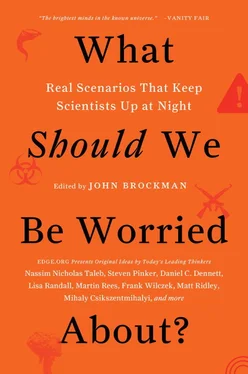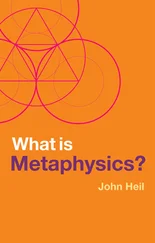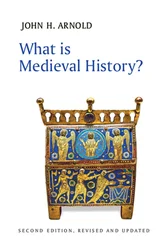THE BELIEF OR LACK OF BELIEF IN FREE WILL IS NOT A SCIENTIFIC MATTER
HOWARD GARDNER
Developmental psychologist; Hobbs Professor of Cognition & Education, Harvard Graduate School of Education; author, Truth, Beauty, and Goodness Reframed: Educating for the Virtues in the Age of Truthiness and Twitter
Over more drinks and more meals than I care to remember, I have argued with colleagues and friends about the existence of free will.
Drawing on recent findings in neuroscience about delayed conscious awareness of actions and reactions but also on a determinist view of causality, most of my conversationalists have insisted that there is no such thing as free will.
For my part, looking at events in ancient and recent history and reflecting on the sometimes surprising conscious life decisions made by others and myself (Martin Luther!), I argue with equal vigor that human beings have free will and that exercising it is what distinguishes us from other animals.
Of course there are various compromises possible: Daniel Dennett–type views that we should act “as if” there were free will and treat others the same way; William James’s “My first act of free will shall be to believe in free will”; or Daniel Kahneman’s implication that System 1 is automatic, whereas System 2 involves conscious reflecting.
But I’ve come to the conclusion that the belief or lack of belief in free will is not a scientific matter. Rather, to use the term created by the historian of science Gerald Holton, we are dealing here with themata—fundamental assumptions that scientists and other scholars bring to the work they do. And as such, the existence or the denial of free will, like the question of whether human nature is basically universal or inherently varied, is not one that will ever be settled. And so I have stopped worrying about it.
ANTONY GARRETT LISI
Theoretical physicist
Within 100 years, unless we make some major research breakthroughs, you are going to die. Before then, you’ll get to watch many of the friends and family you love go through the process of decay, infirmity, and death—their personalities and all their memories gone forever. Witnessing this process over and over, we know it is nature’s way, but it is horrible, tragic, and heartbreaking. The prospect of our own personal death is so terrifying that most people aren’t willing to confront it honestly. To stare into the void and know—truly know—that our existence will shortly end: As natural as it is, we are not emotionally or intellectually equipped to accept it. Instead, most people lie about it to themselves and others.
The greatest lie ever told was that there is a mystical afterlife. This lie has been used for millennia to steel the courage of young men before sending them to kill and die in wars. Even worse, most people lie to themselves when confronting suffering and loss, with stories of a better life after this one, despite there being no credible evidence for any such thing.
But why is it so damaging to share and believe pleasant fantasies of an afterlife, when nonexistence is both inevitable and too horrific to confront? It is damaging because it leads to bad decisions in this life, the only one we have. Knowing that our lives are so short makes each moment and each interaction more precious. The happiness and love we find and make in life are all we get. The fact that there is no supernatural being in the universe that cares about us makes it that much more important that we care about one another.
Because most people lie to themselves about death instead of worrying about it, we are neglecting a radical possibility brought about by advancing technology: Our imminent nonexistence might not be as inevitable as we think. There is no reason, from physics, why our healthy human lives cannot be radically extended by thousands of years or longer. It’s just a tricky engineering problem. But for various psychological, social, and political reasons, we’re not working very hard on it.
There are, of course, some arguments against extending life. The most common argument is that old age and death are natural. But all diseases cured by technology, including polio, smallpox, and leprosy, were natural but clearly not desirable. Nature can be beautiful but also horrible, and we have been able to alleviate some of that horror through science and technology. The second most common argument is that dramatically extended human life spans would put an unsustainable strain on the environment.
But a person becoming immortal would put no greater strain on the environment than having a child. Also, a rejuvenated person requires less expensive medical treatment than a person disabled by the decay of aging and is more motivated to take care of the future environment, because the chances are greater that he or she will be living in it. A third argument against curing aging is that all attempts at significantly extending human life span have failed. This is true, but this was the same argument holding that the sound barrier couldn’t be broken, before Chuck Yeager went rocketing through it.
Even if the probability of quickly finding a technological method to delay or reverse senescence is low, we have been devoting far too little effort to it. After all, no matter what else we might achieve with our work in life, we soon won’t be around to enjoy it. There are other problems on the planet to worry about, but none more personally important. And yet, despite this motivation, there is very little money being spent on longevity research. Because there is no history of success, and because of widely held religious beliefs, government won’t fund it. And because achieving success will be difficult, and the marketplace is flooded with false claims, industry has little interest in solving the problem. Although the profit could be astronomical, there is no easy path to attain it, unlike the prospects for cosmetic improvements. Over 100 times more money is spent on R&D for curing baldness than for curing aging. We may someday find ourselves with extended life spans as an unintended side effect of taking a pill that gives us fuller hair.
This absurd situation is typical for high-risk, high-reward research in an area without an established record of success. Even with strong motivation, financial support is nearly nonexistent. Scientists working on life extension often lack for equipment or a livable salary and risk their careers by conducting oddball research that repeatedly fails. The problems are hard. But even with limited resources, a handful of scientists are devoting their lives to the pursuit because of what’s at stake. Success will require research on a scale similar to that of the Manhattan Project, but government and industry won’t be supporting it. The greatest hope is that private individuals will step forward and fund the research directly or through organizations established for that purpose. Maybe an eccentric, farsighted billionaire will want a chance at not dying. Or maybe many people will contribute small amounts to make it happen. This is being done, to some extent, and it gives me hope.
Personally, I know I am not so different from other people; I also have a very difficult time accepting mortality. When I think about all who have been and will be lost, and of my own impending nonexistence, it makes me ill. It’s entirely possible that the hope I have for a technological solution to aging and death is biased by my aversion to the abyss. Realistically speaking, although I’m hopeful that radical life extension will happen before I die, given our current rate of technological advance it’s more likely that I’ll just miss it. Either way, whether aging is cured within my lifetime or afterward, it won’t happen soon enough. Good people are suffering and dying, and that needs to change in a way that’s never been done before.
Читать дальше












